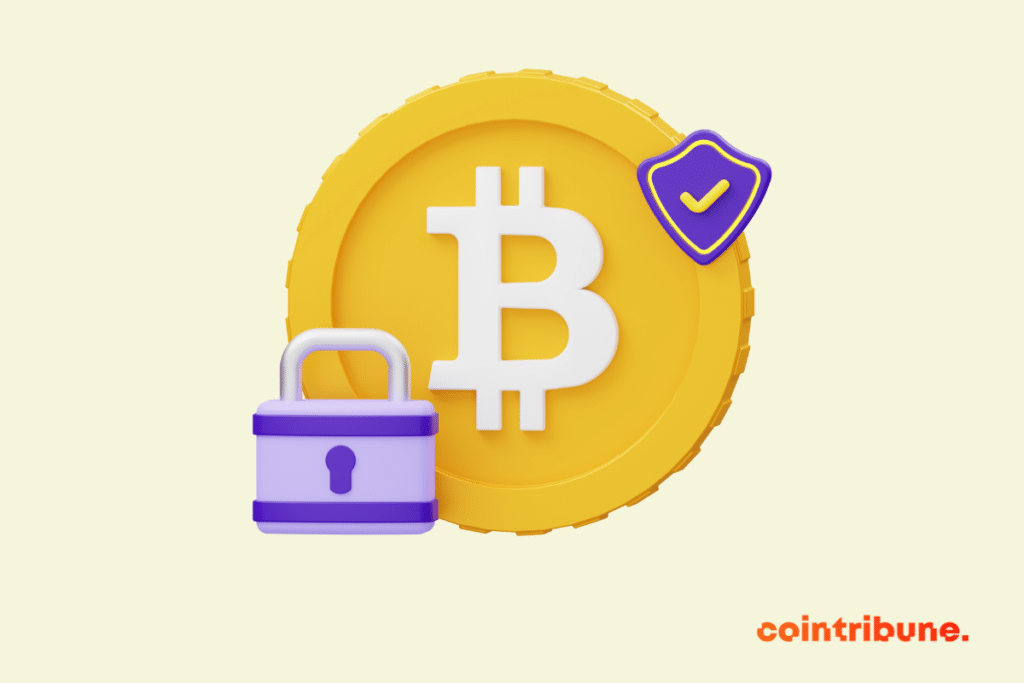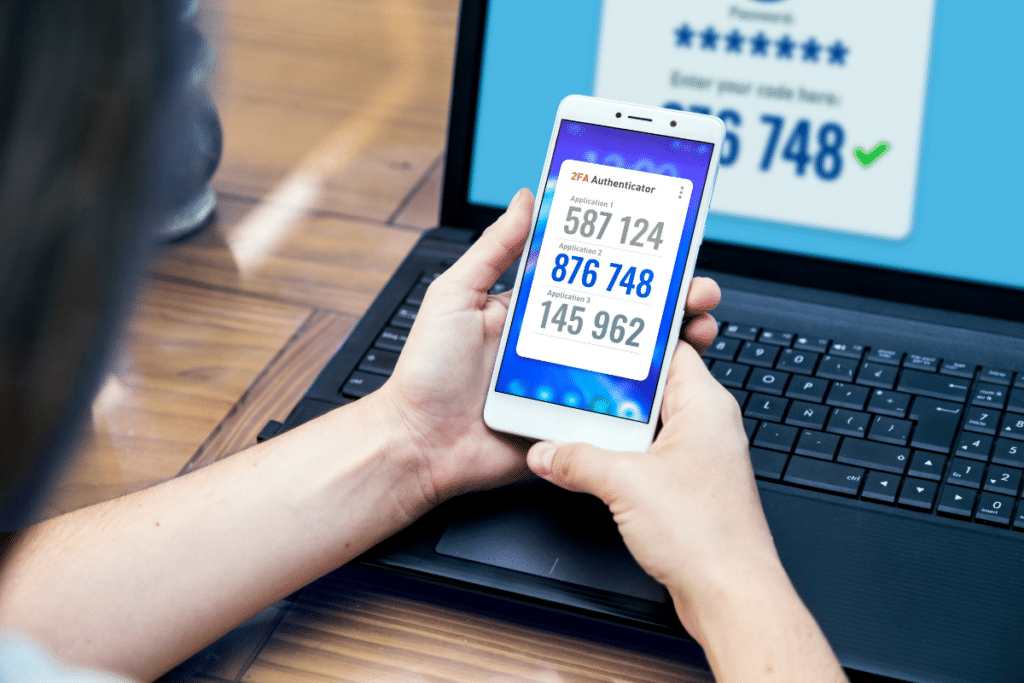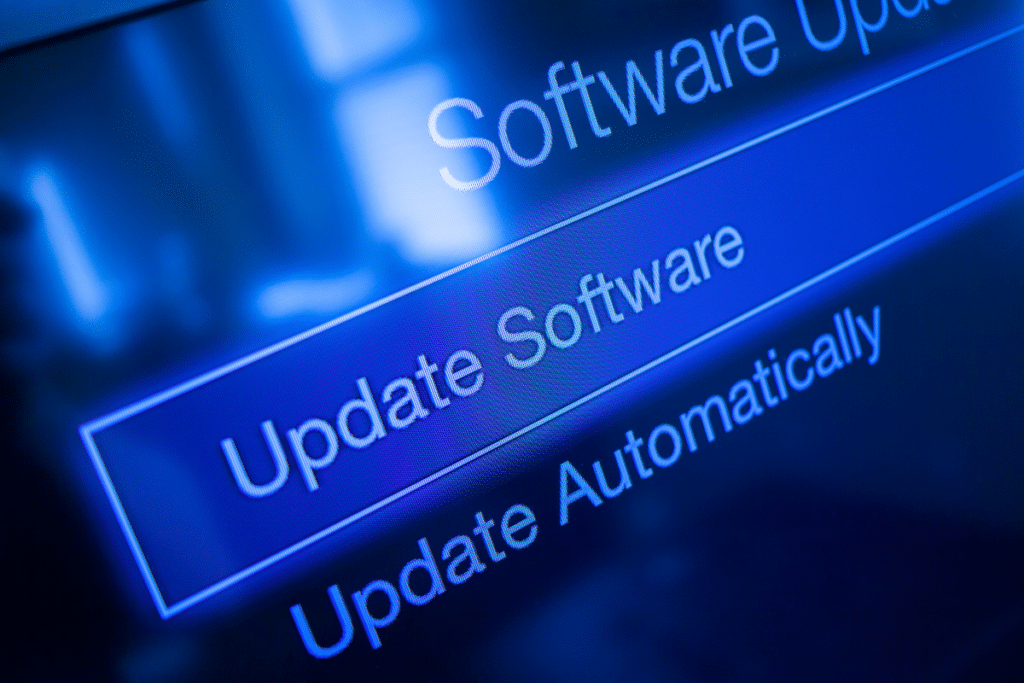Bitcoin Security: Top 10 Tips You Need to Know
The security of cryptocurrencies is a major issue for all investors and players in the crypto industry. Indeed, in a context where cryptocurrency scams are becoming more and more common, learning to keep your bitcoins safe is essential. In this guide, we will present the 10 best tips to ensure the security of your bitcoins and other cryptocurrencies. Follow these steps to minimize risks and protect your valuable digital assets.

Use a secure wallet
For secure cryptocurrency management, particularly Bitcoin, using a solid and reliable digital wallet is imperative. It plays a crucial role in minimizing the risks associated with investing in bitcoin. Indeed, a reliable crypto wallet allows you to keep your private keys out of reach from hackers and other internet threats.
Make your choice between a hardware wallet and a software wallet
You will need to choose between a hardware wallet and a software wallet:
- Hardware wallet (hardware wallet): This is a physical device like Ledger Nano or Trezor. They are generally considered the safest options, as they keep your private keys offline, away from online threats. Your private keys being very important, they must never fall into the hands of third parties. Store them on an offline computer, on a cold wallet, or on a piece of paper,
- Software wallet (software wallet): these are applications or programs that you install on your computer or smartphone. They are generally less secure than hardware wallets, but offer more flexibility and convenience.
Of the two, the physical wallet (Trezor, Ledger, KeepKey, BitLox, etc.) is certainly the most secure way to store your bitcoins. This type of wallet comes in the form of an encrypted USB key. You just need to connect it to your computer when you want to make transactions. Once disconnected from your device, this wallet is a completely secure place for your digital assets.
Check the provider’s reputation
Make sure to choose a wallet from a reputable and reliable provider. Look for online reviews, check specialized forums on the web, and verify if the provider is mentioned on reference sites like bitcoin.org or cointribune.com.

Enable two-factor authentication (2FA)
Two-factor authentication (2FA) is a security method that adds an additional layer of protection and privacy to your wallet by requiring two forms of identification before you can access your funds.
To set up two-factor authentication, you need to use a dedicated application. This will generate a random code that becomes obsolete every sixty seconds. In addition to your password, you will need to enter this code to connect to an exchange or to transfer your assets from one wallet to another.
Furthermore, you should prefer dedicated authentication apps like Google Authenticator or Authy rather than SMS, as they are less vulnerable to hacking attempts. By doing this, you add an additional layer of security to your crypto wallet.
Use a strong and unique password
The importance of a strong and unique password is undeniable for ensuring the protection of your wallet and online accounts. It serves as a barrier against brute force attacks and other commonly used hacking strategies. It thus ensures the security of your Bitcoins and other cryptocurrencies. Indeed, implementing such a security measure is a crucial step not only for preventing unauthorized access but also for facilitating a secure and efficient Bitcoin account recovery if necessary.
Avoid simple passwords
Create a complex password using a combination of uppercase and lowercase letters, numbers, and symbols. Avoid using common words, predictable phrases, or personal information.
Use a password manager
A password manager like LastPass or 1Password can help you create and store unique and secure passwords for each of your online accounts. This way, you enhance the security of your accounts.
Separate your funds between multiple wallets
To reduce risks, spread your cryptocurrencies across multiple wallets. This limits potential losses in case one wallet is compromised. Your Bitcoin wallet is subject to security vulnerabilities, no matter what trick you use to ensure its inviolability. The role of this tip is to minimize security gaps as much as possible. Separating your funds into multiple wallets allows you to anticipate any attacks.
Wallets for daily expenses and savings
Use one wallet for daily expenses and another for long-term savings. The savings wallet should be a hardware wallet or cold wallet for optimal security.
Diversification of risks
Diversifying risks involves spreading your assets across different types of wallets and platforms to minimize risks. You should choose various locations and methods of storage to dilute risks as much as possible. The risk here is the loss of all or part of your capital due to hacking or the failure of the exchange where you hold your bitcoins.
Make regular backups
The backup of your Bitcoin wallet is a procedure that allows you not to completely lose your data in the event of loss or destruction of your wallet. Thanks to it, you can easily recover your funds on a new wallet.
Backup your private keys and recovery phrases
Keep a copy of your private keys and your seed phrase (recovery phrase) in a safe and offline place, such as a safe or a secure storage device. Make sure to never disclose them to anyone.
Store backups in a safe place
Keep your backups in a safe place protected against fire, flooding, and other natural disasters. Store an additional copy in a different location for increased protection.

Regularly update your software and devices
Security updates are essential to protect your cryptocurrencies against vulnerabilities and constantly evolving threats. They therefore enhance the protection of your wallet or the crypto application you are using. They also allow you to access new features proposed by the software designers.
Install security updates as soon as they become available for your wallet, software, and operating system to protect your digital assets against security flaws and new threats. Additionally, always download updates from reliable and verified sources, such as the official website of your wallet or software provider.
Protect yourself from phishing attacks
Phishing attacks are a common threat in the cryptocurrency ecosystem. The hackers who use them generally try to trick you into revealing your personal information or account credentials.
Recognize phishing attempts
Stay vigilant and learn to recognize the signs of a phishing attempt, such as fraudulent emails and websites, unsolicited messages, and suspicious requests. Phishing attempts are becoming increasingly common. Arm yourself against this security risk.
Use ad blockers and anti-phishing solutions
Install browser extensions like uBlock Origin or Adblock Plus to block malicious ads and phishing attempts.
Be Cautious with Crypto Exchanges
Cryptocurrency exchange platforms are often the target of hacker attacks. Therefore, turn to a reliable and secure platform to conduct your transactions. By doing so, you protect your assets, as not all exchanges offer the same level of security to their users.
Choose Reputable Platforms
Opt for well-established and recognized exchange platforms, such as Binance, Coinbase, or Kraken, which have a solid security track record and advanced protective measures. Always prefer players with experience in the field who have proven themselves in the market. An audit
Do Not Store Your Cryptocurrencies on Platforms
Do not keep your cryptocurrencies on exchange platforms for the long term. Even though exchanges regularly strengthen the security of their sites, the risk of a cyberattack is never completely eliminated. Therefore, transfer your funds to a secure wallet after completing your transactions.
Use a VPN to Secure Your Connections
A Virtual Private Network (VPN) is an essential tool to enhance your security and privacy of your transactions and activities on the Internet. It optimizes the protection of your data by encrypting it, thus making your Bitcoin transactions more confidential. Furthermore, it masks your IP address, enhancing the anonymity, which is one of the key features of Bitcoin.
Data Encryption
A VPN protects your data by encrypting it, thereby complicating the task for hackers and spies to monitor and intercept your information.
Mask Your IP Address
A VPN masks your actual IP address, making it harder for hackers and spies trying to locate and target your device.
Educate Yourself on Cryptocurrency Security
Knowledge is the best way to protect yourself. Educate yourself about best security practices and potential threats to protect your cryptocurrencies.
Participate in Specialized Forums and Groups
Join forums and groups specialized in cryptocurrencies and security to exchange tips, experiences, and information with other users and experts.
Stay Informed of the Latest Threats
Stay updated on the latest threats and vulnerabilities by following reliable information sources and subscribing to newsletters specialized in crypto security.
As a bonus, here are some additional ideas for securing your bitcoins or any other digital asset:
- Avoid any danger by keeping silent about your digital assets;
- Choose suitable blockchain technology;
- Do not publish your wallet addresses online for privacy reasons;
- Use a crypto mixer or an anonymous cryptocurrency for large transactions from your crypto wallets. Indeed, transactions from your wallets to other wallets can be publicly viewed.
Conclusion
The security of your cryptocurrencies should be a top priority. By following these tips and staying informed about the latest advancements in security, you will manage to better protect your digital assets against evolving threats, and can minimize the risk of Bitcoin scams. Remember that the responsibility for the security of your Bitcoin wallet falls on you as a user, and that education and vigilance are your best tools to minimize risks.
Maximize your Cointribune experience with our "Read to Earn" program! For every article you read, earn points and access exclusive rewards. Sign up now and start earning benefits.
The Cointribune editorial team unites its voices to address topics related to cryptocurrencies, investment, the metaverse, and NFTs, while striving to answer your questions as best as possible.
The views, thoughts, and opinions expressed in this article belong solely to the author, and should not be taken as investment advice. Do your own research before taking any investment decisions.